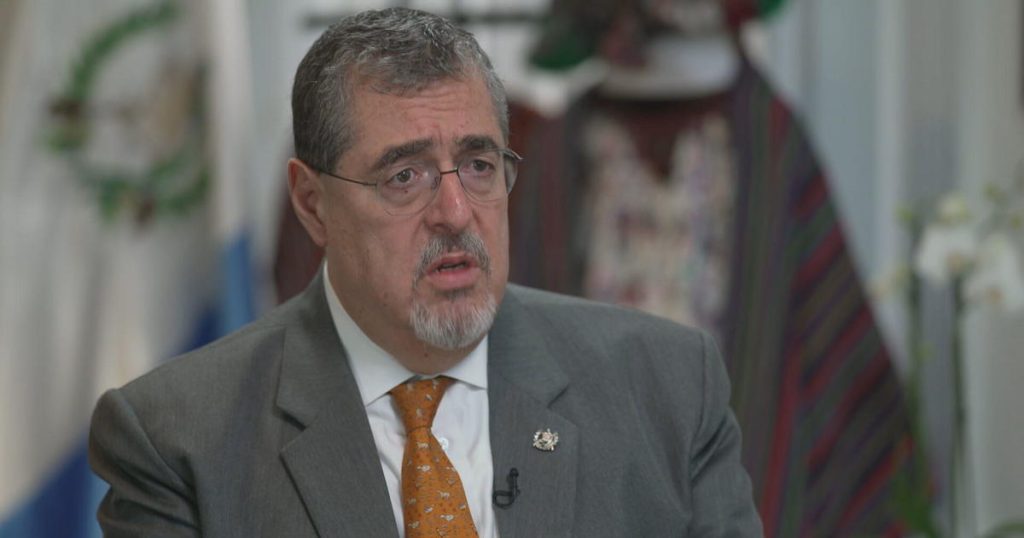Vice President Kamala Harris’s plea for would-be migrants not to come to the United States has not deterred the flow of migrants from Guatemala, with over 709,000 encounters along the southern border since she made those remarks in June 2021. The Biden administration has been grappling with a surge in illegal border crossings since taking office, and President Biden tasked Harris with addressing the root causes of migration. In an effort to address these issues, Harris announced an additional $170 million in economic development and security assistance for Guatemala, signaling a commitment to long-term solutions to discourage migration. However, Guatemala’s new president, Bernardo Arévalo, emphasized the need for U.S. economic investment in his country to create opportunities for people to stay and avoid leaving for the United States.
Arévalo, who took office in January after running on an anti-corruption platform, highlighted corruption as the most urgent problem in Guatemala. He emphasized the importance of fighting corruption in order to achieve the development necessary for people to flourish and stay in their home country. Arévalo’s presidency marks a shift away from the conservative political establishment that has long dominated Guatemalan politics, but ongoing challenges from rivals controlling the judiciary threaten his efforts to revamp the government and restore democratic norms. He expressed support for the release of journalist José Rubén Zamora, who was imprisoned on money laundering charges after reporting on corruption within the previous administration.
In discussions with Vice President Harris, President Arévalo stressed the need for a comprehensive approach to addressing migration that goes beyond physical barriers such as border walls. He believes that integrated solutions are needed to tackle the complex issues driving migration, including economic opportunities, development, and fighting corruption. While welcoming continued cooperation with the Biden administration, Arévalo also expressed openness to working with a potential second Trump administration, indicating a willingness to collaborate with the U.S. regardless of the political context. Despite his efforts to address these challenges, Arévalo faces ongoing scrutiny and legal battles from his political opponents, underscoring the complex and contentious nature of governance in Guatemala.
As Guatemala seeks to address the root causes of migration and improve conditions within the country, Arévalo’s focus on economic development and anti-corruption measures aligns with the Biden administration’s goals. By promoting investments in job creation and addressing systemic corruption, Arévalo aims to provide Guatemalans with opportunities to thrive in their own country and lessen the incentive to migrate. While the challenges of combating corruption and implementing reforms remain significant, Arévalo’s commitment to these efforts signals a new direction in Guatemala’s governance and a potential path towards addressing the underlying issues contributing to migration towards the United States.
In the face of ongoing political and legal challenges, President Arévalo remains committed to his vision of transforming Guatemala by addressing corruption and promoting economic development. His efforts to cultivate partnerships with the U.S. and other nations demonstrate a willingness to collaborate on solutions to the complex issues driving migration. As the Biden administration grapples with the persistent challenges at the border, including the need to address root causes of migration, the discussions between Vice President Harris and President Arévalo underscore the importance of international cooperation in tackling these issues. By working together to address the multifaceted drivers of migration, both countries aim to create a more stable and prosperous future for the people of Guatemala and address the longstanding challenges at the U.S.-Mexico border.


